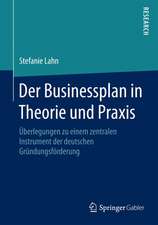The Origin of the Capitalist Firm: An Entrepreneurial/Contractual Theory of the Firm
Autor Weiying Zhangen Limba Engleză Hardback – 23 aug 2017
The book addresses the entrepreneurial origin of the capitalist firm and its asymmetric contractual relationships between capitalists, workers, managers and entrepreneurs, and explains the origin of the firm by focusing on entrepreneurship. A hidden action model shows how assigning residual claim to entrepreneurs can provide a better overall incentive; a hidden information model demonstrates that capitalists are given priority and have authority to select the management, because capital can signal entrepreneurial ability; and a general equilibrium entrepreneurial model shows that the equilibrium relationships between different members of the firm depend on the joint distribution of ability, wealth and risk attitudes in the population. Overall, the book reveals that the capitalist firm is more efficient, not only because it provides better incentives but also because it ensures that the most entrepreneurial people control the firm.
| Toate formatele și edițiile | Preț | Express |
|---|---|---|
| Paperback (1) | 575.22 lei 39-44 zile | |
| Springer Nature Singapore – 12 aug 2018 | 575.22 lei 39-44 zile | |
| Hardback (1) | 698.94 lei 6-8 săpt. | |
| Springer Nature Singapore – 23 aug 2017 | 698.94 lei 6-8 săpt. |
Preț: 698.94 lei
Preț vechi: 822.29 lei
-15% Nou
Puncte Express: 1048
Preț estimativ în valută:
133.75€ • 143.02$ • 111.51£
133.75€ • 143.02$ • 111.51£
Carte tipărită la comandă
Livrare economică 17 aprilie-01 mai
Preluare comenzi: 021 569.72.76
Specificații
ISBN-13: 9789811002205
ISBN-10: 9811002207
Pagini: 150
Ilustrații: XVI, 196 p. 20 illus.
Dimensiuni: 155 x 235 x 19 mm
Greutate: 0.48 kg
Ediția:1st ed. 2018
Editura: Springer Nature Singapore
Colecția Springer
Locul publicării:Singapore, Singapore
ISBN-10: 9811002207
Pagini: 150
Ilustrații: XVI, 196 p. 20 illus.
Dimensiuni: 155 x 235 x 19 mm
Greutate: 0.48 kg
Ediția:1st ed. 2018
Editura: Springer Nature Singapore
Colecția Springer
Locul publicării:Singapore, Singapore
Public țintă
ResearchCuprins
Preface to the second edition.- Preface to the first edition.- Acknowledgements.- Chapter 1 Introduction: Why Does Capital Hire Labour?.- Chapter 2 Marketing, Producing, Monitoring and the Assignment of Principalship.- Chapter 3 Marketing Ability, Personal Wealth and Capital-Hiring-Labour.- Chapter 4 A General Equilibrium Entrepreneurial Model of the Firm.- Chapter 5 Conclusions.- References.- Appendix 1: A Principal-agent Theory of Public Economy and Its Applications to China.- Appendix 2: Decision Rights, Residual Claim and Performance: A Theory of How Chinese State-owned Enterprise Reform Works.
Notă biografică
Weiying Zhang is the Sinar Mas Chair Professor of Economics National School of Development, Peking University. He received D. Phil in economics from Oxford. His research interests are industrial organization and theory of the firm; game and society; corporate governance; economic transition in China; law and economics; strategy and competitiveness and philosophy of economics. His published books including Game Theory and Information Economics, The Theory of the Firm and Chinese Enterprise Reform, The Logic of the Market: An Insider’s View of Chinese Economic Reform, etc. all have great academic impact. His insightful and provocative opinions about China’s reform have been widely reported both in China and in international media (such as WSJ, FT and NYT).
Textul de pe ultima copertă
The book addresses the entrepreneurial origin of the capitalist firm and its asymmetric contractual relationships between capitalists, workers, managers and entrepreneurs, and explains the origin of the firm by focusing on entrepreneurship. A hidden action model shows how assigning residual claim to entrepreneurs can provide a better overall incentive; a hidden information model demonstrates that capitalists are given priority and have authority to select the management, because capital can signal entrepreneurial ability; and a general equilibrium entrepreneurial model shows that the equilibrium relationships between different members of the firm depend on the joint distribution of ability, wealth and risk attitudes in the population. Overall, the book reveals that the capitalist firm is more efficient, not only because it provides better incentives but also because it ensures that the most entrepreneurial people control the firm.
Caracteristici
Explains the origin of the firm by focusing on entrepreneurship Discusses why entrepreneurs monitor workers rather than workers monitoring entrepreneurs Combines the contractual approach with the entrepreneurial approach to establish an entrepreneurial/contractual theory of the firm Includes supplementary material: sn.pub/extras


























